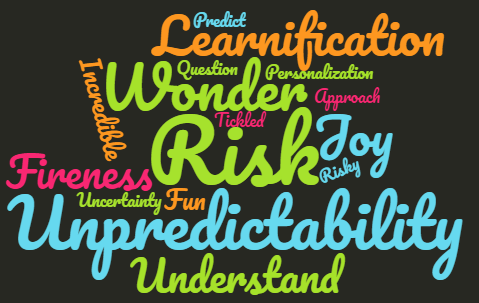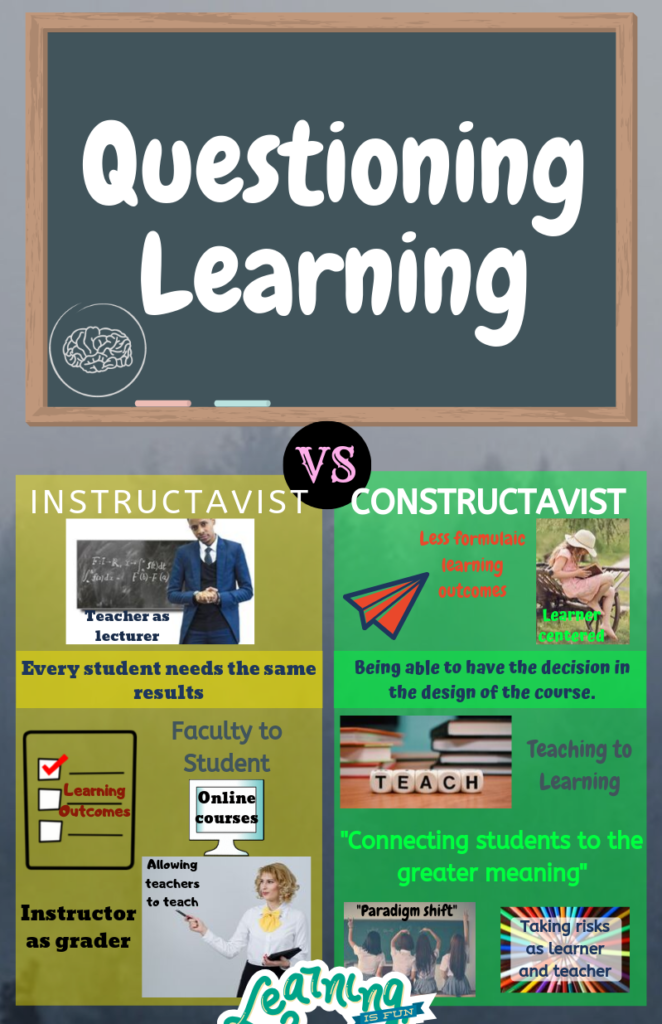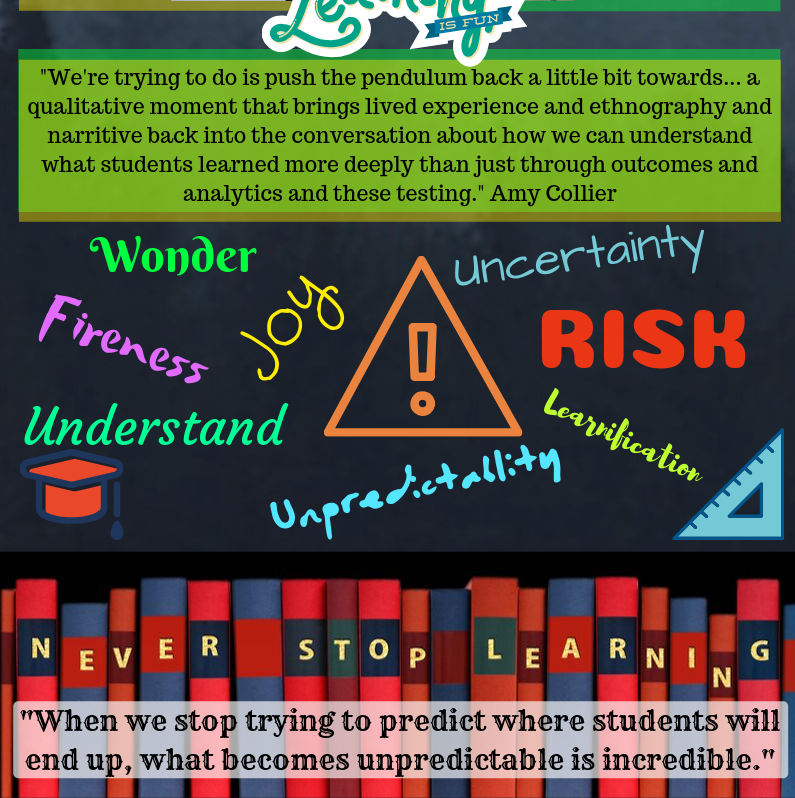While I was listening to Chris Friends interview with Amy Collier, Questioning Learning, I noticed some major themes that developed while they spoke. Right away Collier began talking about this idea of Learnification. This got me thinking about how education really does have a divide. There are those that believe we need to focus solely on the student and their learning style, and those that consider it best if each student learns the same thing. Now I had to look up what learnification meant, and it is essentially where Gert Biesta believed that if we start to change education so that we are focusing more on the student, then the teacher will soon become obsolete. Teachers become useless in a new technological age where any question we could possibly ask has a readily available answer. Amy Collier, in her interview with Chris Friend, mentions,
“What we miss is that learnification actually comes from the paradigm of kind of really individualizing education, putting it at the responsibility of the individual rather than kind of a community activity, taking away the relational context of faculty to student, that when you think about teaching has always kind of been there.”

On the other hand, you have educators that believe seeing the student and adapting the curriculum to suit them is what we really need to focus on. I think that it should not be more of one than the other. We need an equal balance of both types of logic. Within my own teaching I know that I often forget to follow the curriculum and instead focus more on what would be relevant and fun to learn. Sometimes I find myself “seeing the student” too much and not enough on what they are told to be learning. Being in Drama and English I often have more free rein on what I can teach my students, and I think that is what helps me to achieve the balance.
Education isn’t just about what the student should learn, but it’s also exactly about that.

Another major topic that they approached was the use of language in education. With a specific focus on the word “risk.” How “education is a series of risks” and we have to “embrace risk”. This was one concept that really resonated with me. Again, the balance between staying within the guidelines of what we have been afforded, while also taking risks. This is something that I find some teachers really struggle with achieving because they’re too afraid of getting it wrong, or not being liked by their students. Personally, I have been hearing the word “risk” a lot in education. I know that working with students who are “in-risk” often scares many teachers, but these are the students that I enjoy educating with the most. I enjoy working one on one with them because they are often the students that we can learn the most from. They are also the most rewarding. Working with these students in my undergrad has really made me realize that this is the type of student that I want to continue to learn from.
While I was making my artifact I tried to really capture the sides of education that Friends and Collier were discussing. I was originally going to make a video, but I was struggling with how to capture what I was thinking onto the video. I then looked at other mediums to use and landed on the infographic. This was the perfect way that I could capture what I visually imagined while listening, and how I gathered the information. I decided that the infographic would capture the essence of the podcast more, so this is the final product.


